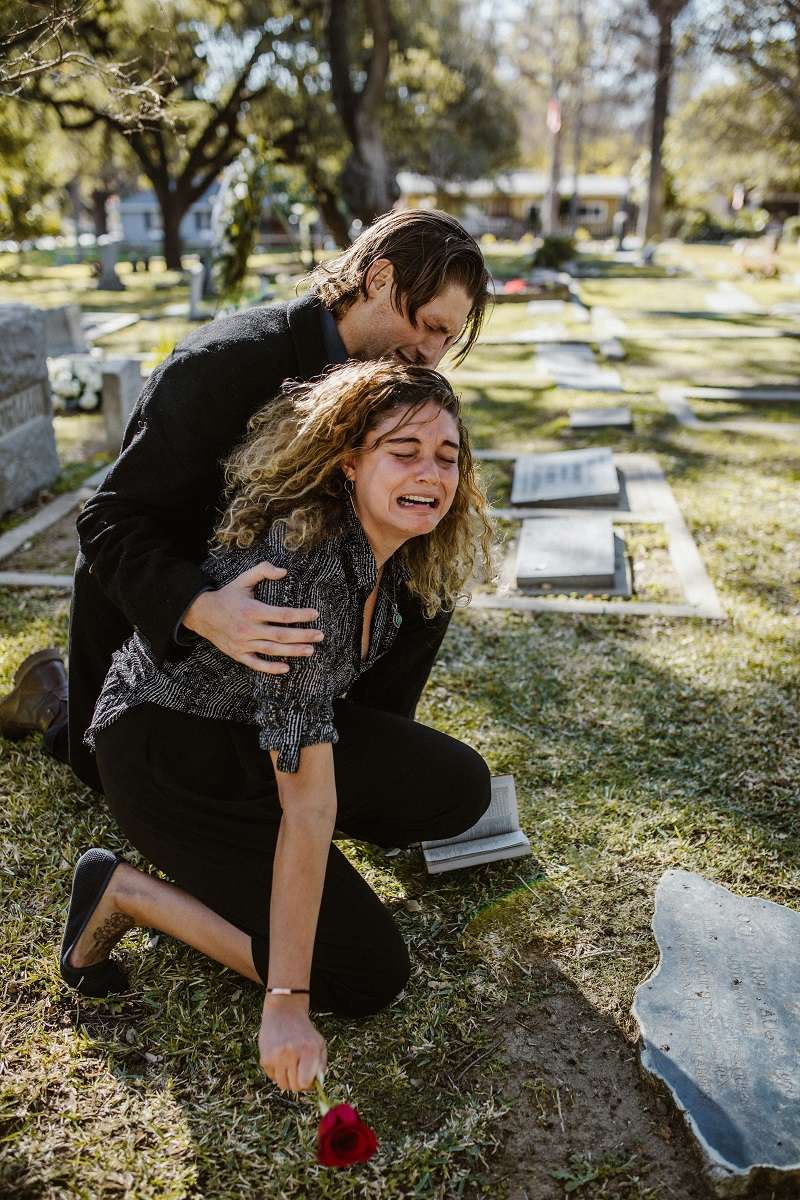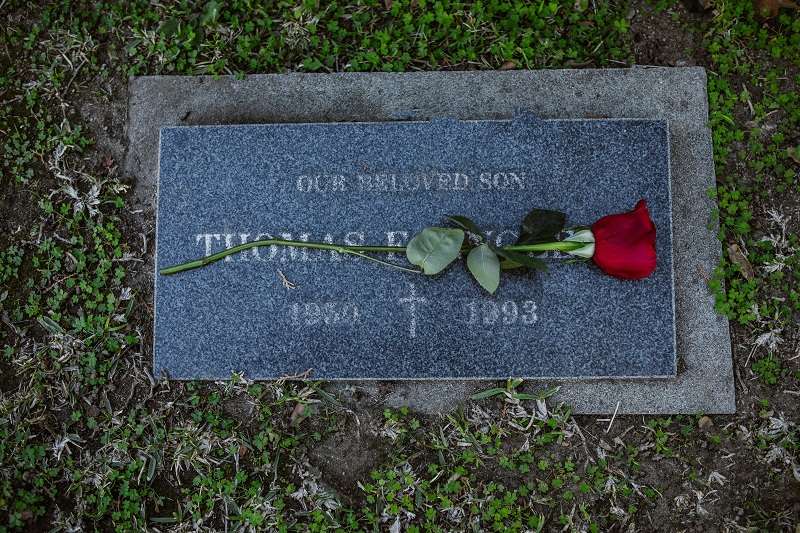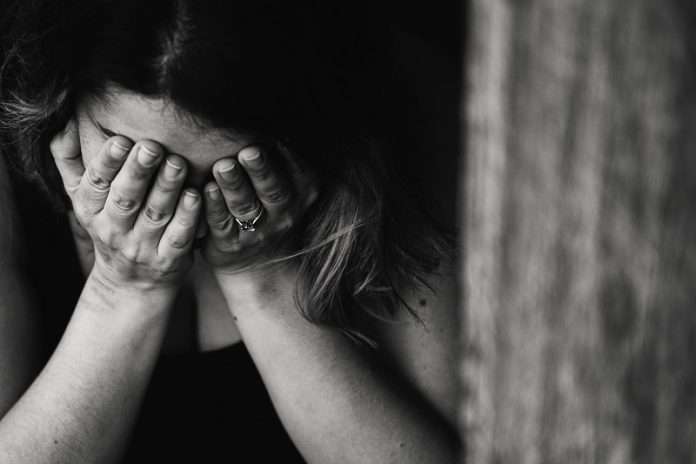By Hermoine Macura-Noble
Special to The Times Kuwait
Nothing can really prepare you for the death of a family member. The sadness, grief, and heartache can be overwhelming. Most people experience intense emotions, even when the death is expected. Many people will initially feel numb after first learning of a death; however, there is no actual order to the grieving process.
Bereavement is not just limited to emotional responses either. Grief can also trigger physical reactions in your body, such as weight and appetite changes, difficulty sleeping, and aches and pains. Some common emotions and physical symptoms also include feeling numb, shock or disbelief, Sadness or depression, tiredness and loss of energy, difficulty concentrating, feeling frightened, helpless or lonely, and not accepting that the person is really gone.

Indian national, Zeon Sequeira explains his experience of losing his hero and best friend. “Losing my father itself hurt so badly…My father was on life support during the last 24 hours of his life. The doctors told us they tried their best and couldn’t do anything else. So I stood there by his side, watching my mother and sister pray and cry for him to return to us as I watched his heartbeat drop. And just like that, in a moment, I lost my father…I felt emptiness. Helplessness. Sadness beyond anything I had ever experienced in life. None of my past heartbreaks would ever prepare me for a loss of this magnitude. It was done. I touched his face and held it for a bit as I came to terms with the fact that I would never sit and have another conversation with him, nor would I see him smile again.”
Doctors classify grief into two types: acute and complicated. Most people experience acute distress in the first 6-12 months after a loss, and it gradually resolves. Some experience complicated grief that lasts longer than 12 months.

Complicated grief occurs when grief worsens over time, and you cannot move forward or resume your daily life and activities. It includes things like painful, hard-to-control emotions such as guilt, anger, or bitterness, being preoccupied with memories, thoughts, or pictures of the deceased person that might interfere with joining in on activities or other relationships, and having a hard time getting back to a sense of purpose, or joy in life.
“Grief is a normal response to loss. It becomes abnormal when people refuse to grieve or are unable to find someone who cares,” says Professor of Professional Counseling, Dr. Bill Buker. There are things you can do to help you cope with your loss, as well as people and professionals who can support you through your bereavement. An excellent place to start is to seek support from others.
When you lose someone close to you, it’s normal to want to cut yourself off from others and retreat into your shell. But this is no time to be alone. Even when you cannot talk about your loss, being around others who care about you can provide comfort and support. Accept emotional and practical support from others.
Author and Director of the Center for Life Transition, Alan D. Wolfelt, describes six steps to loss which include acknowledging the reality of the failure, feeling the pain of the loss, remembering the loss, developing a new self-identity, searching for meaning and receiving ongoing support from others.
“Instead of encouraging mourners to express themselves, our culture’s unstated rules would have them avoid their hurt and ‘be strong’. But grief is not a disease. Instead, it is the normal, healthy process of embracing the mystery of the death of someone loved. If mourners see themselves as active participants in their healing, they will experience a renewed sense of meaning and purpose in life,” says Dr. Wolfelt.
Other steps include not making big decisions in the first 12 months. The death of a loved one can cause a lot of upheaval in your life, so it is best to keep everything else as normal as possible. Avoid making significant changes or big life decisions, such as moving, remarrying, changing jobs, or having another child. Give yourself time to adjust to your loss. Routines, prayer, and connecting with God can also significantly help. Experts also say that pursuing your hobbies and sports can bring you a sense of purpose and comfort following the upheaval of bereavement.
“Creating healthy habits and any form of exercise to your daily routine while you’re grieving or dealing with loss can help massively. Any exercise, from walking to group classes, is therapy for the mind. Exercise releases serotonin known as the ‘feel good hormone,’ which can help relieve stress and anger and stave off anxiety and depression,” explains Health and Fitness expert Daniel Costello.
Finding little ways to celebrate your loved one’s life can also help keep their memory alive and comfort you as you move through the grieving process. Simple acts like lighting a candle, visiting a favorite place of your loved one, or planting flowers or a tree in their memory can be enriching and help with the healing process. Last but not least, it is essential to take care of yourself. Grief can take its toll on your physical and mental Health. You must eat and sleep well and get plenty of exercise.
The intense emotions you are dealing with can impact your immune system, affect your diet and sleep, and take a heavy toll on your overall mental and physical health. Immersing yourself in nature or spending time in green spaces can be a calming, soothing experience when grieving. Also, learn to be patient with yourself if you have difficult days. It can take months or even years to absorb a significant loss and accept that your life has changed forever. Understandably, you never stop missing your loved one, but the pain does ease in time and eventually allows you to continue with your life.
“Family and friends were the most important factors that helped me with my grieving process. I started hearing stories about my father from different family members, friends, and even random strangers about how he lived his life – selfless generosity and compassion for everyone around him. One of the most comforting ways in which I choose to heal is by maintaining a journal and writing about him, everything I remember about him so that when I am old, and my memory is weak, I can continue reading about his life from the eyes of my inner child that will always love and miss him,” concludes Sequeira.
 By Hermoine Macura-Noble
By Hermoine Macura-Noble
The first Australian English speaking News Anchor in the Middle East. She is also the Author of Faces of the Middle East and Founder of US-based 501c3 charity – The House of Rest which helps to ease the suffering of victims of war. For more from our Contributing Editor, you can follow her on Instagram, here.

















